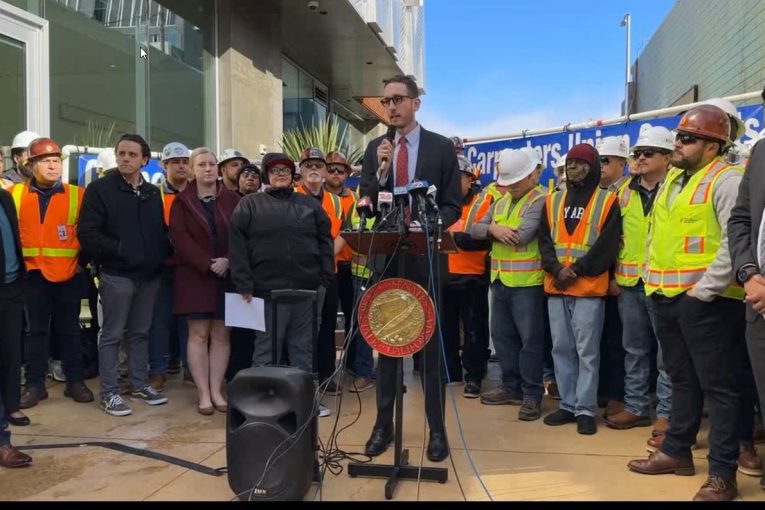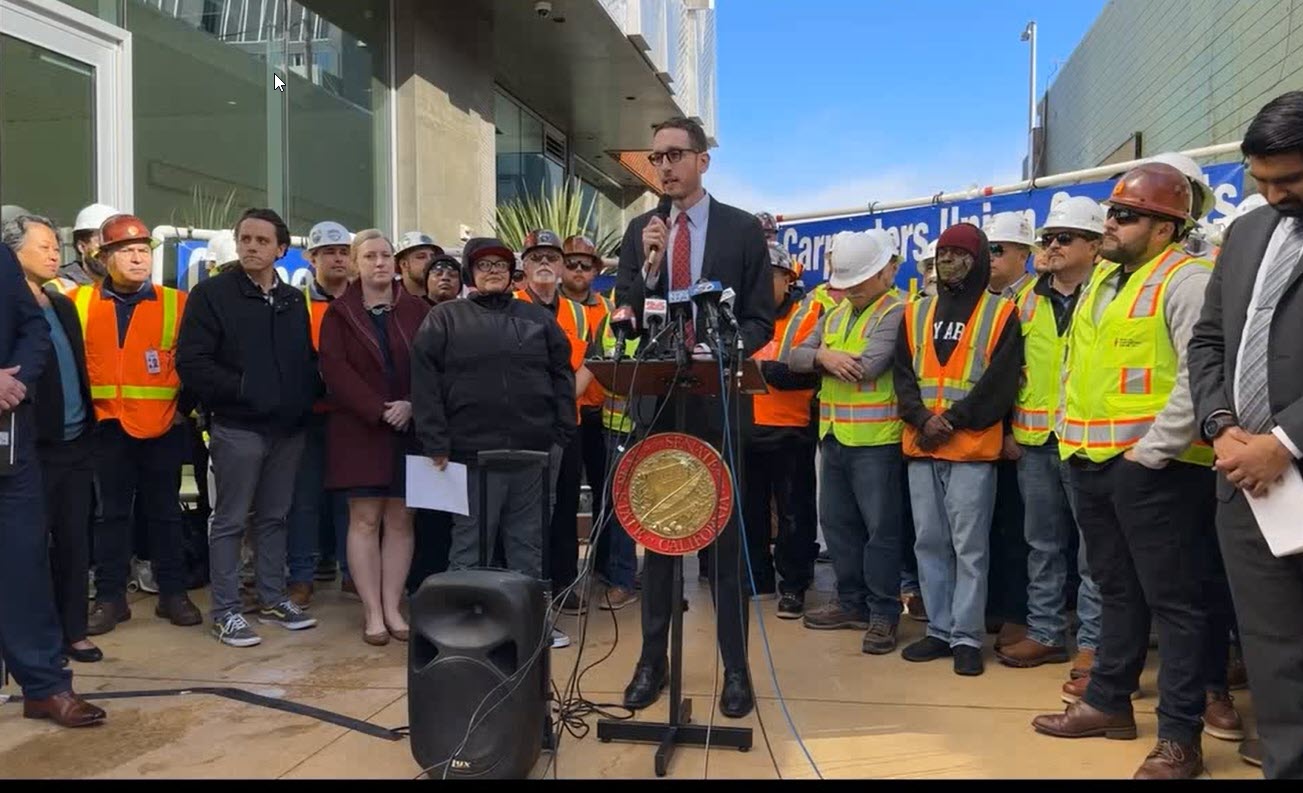

By David M. Greenwald
Executive Editor
Sacramento, CA – On Wednesday, Governor Newsom signed two vital housing bills into law. The bills were part of a package of bills that were signed into law “that incentivize and reduce barriers to housing and support the development of more affordable homes.”
According to a release from Senator Scott Wiener’s office, “The new laws massively boost affordable housing production across California by extending and strengthening landmark streamlining provisions, allowing affordable housing to be built by right on land owned by faith institutions and nonprofit colleges, and creating a tax increment financing structure to replace 5,800 affordable homes in San Francisco lost to redevelopment.”
“It’s simple math—California needs to build more housing and ensure the housing we have is affordable. In partnership with the Legislature, we have advanced billions of dollars to that end. These 56 bills build on that work, supporting tenants and ensuring cities are held accountable to plan for and permit their fair share of housing,” Governor Newsom said in a statement.
The Governor signed SB 4 by Senator Wiener, colloquially known as Yes In God’s Backyard (YIGBY), which allows a religious institution or independent institution of higher education to build a housing development project on their property “by right.”
The Governor also signed SB 423 by Senator Wiener, which extends the sunset on SB 35 (Wiener, Chapter 366, Statutes of 2017), requiring local governments that are failing to meet state housing planning goals to streamline affordable housing projects.
“California desperately needs to ramp up housing production, and the Governor’s action today helps put us on a path to achieve that goal,” said Senator Wiener. “The era of saying no to housing is coming to an end. We’ve been planting seeds for years to get us to a brighter housing future, and today we’re continuing strongly down that path.”
“Governor Newsom has made it clear that he supports making it faster, easier, and less expensive to build affordable homes in our coastal cities,” said Brian Hanlon, CEO of California YIMBY. “With SB 423 now law, many more Californians from all walks of life will be able to afford to live—and thrive—in the Golden State.”
“Housing policy is climate policy,” Hanlon said. “SB 423 will allow more homes to be built where they’re most needed, while reducing climate pollution. California YIMBY was proud to co-sponsor this legislation, and we thank Sen. Scott Wiener for his continued leadership on housing and climate.”
“This year’s housing package takes bold action on the housing shortage crippling California,” said Laura Foote, Executive Director of YIMBY Action. “With each of these critical bills, we are making a statement about the need for more homes. With the permit streamlining in SB 423, we are saying yes to more homes today. Passing these bills demonstrates California’s commitment to addressing the chronic, debilitating housing shortage—but we know that legislation will not be enough. Too often the intention of these bills is chewed up in local implementation. YIMBY Action and our grassroots advocates will continue the fight to ensure these important housing accountability laws are fully implemented, and California finally delivers in its promises of housing for all.”
SB 423 extends Senator Wiener’s SB 35 (2017), one of the state’s most successful tools for accelerating development of affordable housing. The bill passed the Assembly 61-8 and passed the Senate on concurrence 27-7 with bipartisan support.
SB 35’s streamlined approvals have proven to be enormously successful at increasing affordable housing production in communities failing to keep pace with their housing goals—helping develop over 18,000 units of affordable housing and tens of thousands of high-wage jobs in the four years since it went into effect.
SB 4 ensures that churches, faith institutions, and nonprofit colleges will be able to build affordable housing on their land without having to go through an expensive and difficult rezoning and discretionary approval process. It re-zones the property and ensures neither CEQA (California Environmental Quality Act) nor local political processes can be misused to stop these affordable housing projects. The bill had previously passed the Assembly 73-1 and passed the Senate on concurrence 32-2 with bipartisan support.
A recent report from UC Berkeley’s Terner Center found that there are roughly 171,000 acres of land throughout the state that would be eligible for affordable housing under SB 4. One of the chief obstacles to affordable housing development is that affordable housing developers must compete against market rate developments for land. SB 4 opens tens of thousands of acres that affordable housing developers will have exclusive access to.
“SB 4 creates a powerful new tool that harnesses the mission of our religious institutions and colleges to address the homebuilding needs of our state,” said Abram Diaz, Policy Director for the Non-Profit Housing Association of Northern California. “This law unlocks over 171 thousand acres of land strictly for affordable housing production, creating a game changing opportunity to house more veterans, seniors, people with disabilities, and other community members who need support. This is California policymaking at its best, by designing solutions that empower our community leaders to direct their resources to solve our most pressing problems. We are proud to partner with Senator Wiener and our coalition of over 300 supporters on this issue and applaud Governor Newsom for signing this bill into law.”
Any organization building this type of streamlined affordable housing must maintain the affordability of these homes for a minimum of 55 years for rental properties and 45 years for properties that can be owned. Additionally, density and height requirements are tied to what is deemed appropriate for affordable housing by state law.
California’s housing crisis continues to worsen, as jurisdictions across the state fall behind their goal of building 2.5 million homes in the next 8 years. Young families are leaving California in search of cheaper housing, kids can’t afford to live where they grew up, and evictions and displacement are spiking. Our homelessness crisis is worsening, and people are sleeping on their streets and in their cars in higher and higher numbers. SB 4 will allow churches and other nonprofit colleges to help alleviate this crisis by building affordable housing on their own property. These institutions already serve deeply important and central roles in our communities, and those that feel called to should be able to provide housing to those who need it.
The bill was amended in the Assembly Natural Resources Committee to improve environmental protections and assessments concerning active oil wells.

